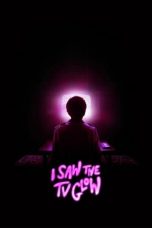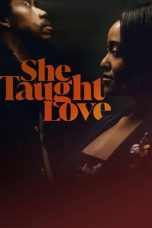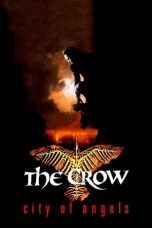- Source: Low-Life
- Source: Low-life
- Source: Low Life
Low-Life is the third studio album by English pop group New Order, released on 13 May 1985 by Factory Records. It is considered to be among the band's strongest work, displaying the moment they completed their transformation from post-punk hold-overs to dance-rockers. The album shows New Order's increased incorporation of synthesisers and samplers, while still preserving the rock elements of their earlier work. The original Factory CD issues of the album were mastered with pre-emphasis.
The songs on this album formed the basis of the band's live concert video Pumped Full of Drugs, filmed in Tokyo shortly before the album's release. The music video for "The Perfect Kiss" was directed by Jonathan Demme.
Artwork
The album's artwork is the only New Order release to feature photographs of the band members on its cover; according to designer Peter Saville, the decision to do this was due to him growing tired of his previous "concept covers." To photograph the band, Saville took portraits of them with instant film, which he saw as more versatile than conventional 135 film, stating that "you could push it and do funny things with it. It was very graphic and very dynamic. The grain and the texture made everything look like a movie film." Saville further stated that the band were initially reluctant to depict themselves in the artwork; however, thanks in part to the rapid turnaround of instant film, they grew to enjoy the photoshoot after seeing the results. The album comes packaged with drummer/keyboardist Stephen Morris on the front cover, while inside the case are four photographs and a semi-transparent piece of paper with the band's name, allowing consumers to choose which band member is seen through the sleeve.
Singles and re-releases
The album was preceded by the release of the full-length version of "The Perfect Kiss" as a single (only an edited version appears on the album). John Robie's remix of "Sub-culture" was also released as a 12″ single. Both of these extended versions eventually were included on 1987's Substance.
In 2008, the album was re-released in a Collector's Edition with a bonus disc, including the 17-minute complete version of "Elegia", which was only previously available on a limited edition disc of the 2002 box set Retro and, for the first time in digital format, the unedited 12″ mix of "The Perfect Kiss".
In 2023, the album was re-released as the Definitive Edition, featuring bonus CDs and DVDs with previously unreleased content.
Reception
In a contemporary review of Low-Life for the Los Angeles Times, Richard Cromelin stated that New Order's "varied menu of soul-pop, techno-rock, delicate instrumental moods, and driving, clattering percussion offers adventure in texture at every turn", and that while the album does not contain "anything as transcendent" as "Love Will Tear Us Apart" by New Order's precursor Joy Division, "its confidence and imagination suggest that the possibility is still there." Robert Christgau of The Village Voice noted New Order's attempt to insert some "affect" into its music and wrote that the band "has its heart (or a reasonable facsimile thereof) in the right place, so one doesn't want to quibble." While panning "Love Vigilantes" as "an appallingly naive self-parody", Steve Sutherland of Melody Maker found that the remainder of the album "boasts the most articulate sound since The Cocteaus' Treasure, elevating depression to ecstasy." Giving it an 8 out of 10 rating, Smash Hits Neil Tennant found it to be New Order's best work: "the songs are much stronger than usual - not just doomy electronic workouts but memorable melodies with a sense of humour lurking in the words."
John Bush of AllMusic wrote that Low-Life was "in every way, the artistic equal" of New Order's previous album Power, Corruption & Lies, as well as "the point where the band's fusion of rock and electronics became seamless". The A.V. Club's Josh Modell similarly noted that the album "completely locked the disco influences into sync with New Order's pop leanings". David Quantick, writing in Uncut, felt that Low-Life was "the first New Order album that sounds like an album", with Bernard Sumner's "most human lyrics" complementing Gillian Gilbert and Stephen Morris' "pop axis" and Peter Hook's "breath-taking" bass performances. In 2000, Q magazine placed Low-Life at number 97 on its list of the "100 Greatest British Albums Ever". Low-Life was included in the book 1001 Albums You Must Hear Before You Die.
Track listing
Personnel
Credits adapted from the liner notes of Low-Life.
New Order – production
Michael Johnson – engineering
Mark, Penny and Tim – tape operators
Trevor Key – photography
Peter Saville Associates – design
Charts
Certifications
Release history
UK LP – Factory Records (FACT 100)
UK CD – Factory Records (FACD 100)
UK cassette – Factory Records (FACT 100C)
US LP – Qwest Records (25289-1)
US cassette – Qwest Records (9 25289-4)
UK CD (1993 re-release) – London Records (520 020-2)
References
External links
Low-Life at Discogs (list of releases)
Low-life (plural: low-lifes) (or lowlife) is a term for a person who is considered morally unacceptable by their community. Examples of people typically referred to as low-life include aggressive panhandlers, bullies, criminals, drug dealers, freeloaders, hobos, gangsters, sex offenders, pimps, scammers, and thieves.
Often, the term is used as an indication of disapproval of antisocial or self-destructive behaviors, usually bearing a connotation of contempt and derision. This usage of the word dates to 1911. The long-term origins of the ideas behind this in the Western world trace back to ancient times with the distinction of high culture associated with aristocracy at the top of the social hierarchy who were regarded in aristocrat-dominated society as compared with low culture associated with commoners at the bottom of the social hierarchy that included many impoverished people among them.
In common usage, the term can also be used for people associated with adhering to low culture, or used to describe a crass, overly casual person who exhibits a lack of grace and refinement. In this sense, individuals do not necessarily need to be criminally destructive or hold ethically questionable views to qualify for the term.
Similar terms used for the same type of person include the Australian/New Zealand term feral.
Reputation
Upwardly mobile members of an ethnic group, committed to schooling, education and employment prospects, will often reject low-lifes who instead opt (willingly or unwillingly) for street or gang life.
Attraction
The lure of the low-life for those in established social strata has been a perennial feature of western history: it can be traced from the Neronian aristocrat described by Juvenal as only at home in stables and taverns–"you'll find him near a gangster, cheek by jowl, mingling with lascars, thieves and convicts on the run"–through the Elizabethan interest in cony-catching, up to William Burroughs' obsession with the hobo, bum, or urban outlaw, and through to the anti-heroes of Cyberpunk.
Such interest may have a sexual component, based on the subconscious equation of socially low status with lack of inhibitions, as with the Roman ladies described by Petronius: "Some women get heated up over the very dregs and can't feel any passion unless... among the lowest of the low".
References
Further reading
Luc Sante, Low Life: Lures and Snares of Old New York (2003)
Low Life, Low-Life, or Lowlife(s) may refer to:
Low-life, a person considered morally unacceptable by their community
Film
The Low Life, a 1995 American film by George Hickenlooper
Low Life (film), a 2004 South Korean film by Im Kwon-taek
Lowlife (2012 film), a Canadian horror film by Seth A. Smith
Lowlife (2017 film), an American film by Ryan Prows
Literature
Low Life (book), a 1991 book by Luc Sante
Low Life (comics), a 2000 AD comic story in the world of Judge Dredd
Lowlife (comics), a 1992–1995 series by Ed Brubaker
Lowlifes, a 2018 IDW Publishing comics series
Music
Low Life Records, a British record label
Lowlife (band), a 1985–1997 Scottish band
= Albums
=Low-Life, by New Order, 1985
Low Life (Peter Brötzmann and Bill Laswell album) or the title song, 1987
Lowlife: The Paris Concert, by Tim Berne, 1995
Low Life (EP), by Massive Ego, or the title song, 2014
= Songs
="Low Life" (song), by Future, 2016
"Lowlife" (song), by Poppy, 2015
"Low Life", by the 4-Skins from The Good, The Bad & The 4-Skins, 2007 reissue
"Low Life", by Bryan Adams, the B-side of "Have You Ever Really Loved a Woman?", 1995
"Low Life", by Death from Spiritual Healing, 1990
"Lowlife", by John Eddie
"Low Life", by the Police, the B-side of "Spirits in the Material World", 1981
"Lowlife", by Theory of a Deadman from The Truth Is..., 2011
"Low Life", by Ufo361, 2021
"Low Life", by X Ambassadors from VHS, 2015
"Low Life", by ZieZie, 2017
Kata Kunci Pencarian:
- Low Life (film)
- Donald Low
- Edward Low
- Natasha Low
- Siberpunk
- Metro Boomin
- Prison Playbook
- Kim Nam-gil
- Kontra-Pencerahan
- New Order
- Low-Life
- Low-life
- Low Life
- The Low Life
- Low Life (song)
- Vida Guerra
- Cryogenics
- Low Life (film)
- High Heels and Low Lifes
- Low Life (EP)
Bolero: Dance of Life (1981)
The Bourne Supremacy (2004)
No More Posts Available.
No more pages to load.














